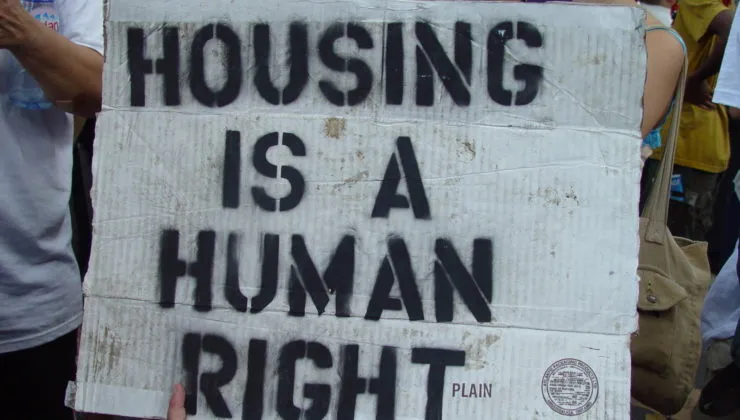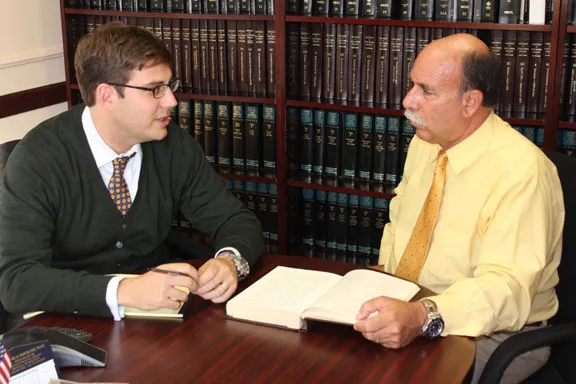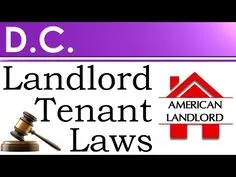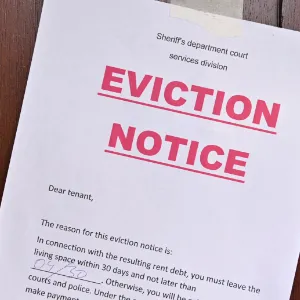CHAPTER 1: INTRODUCTION
Every landlord wants to be like other good landlords to their tenants despite what it takes; but all they want is all about the good stay of her tenants because most landlord who has read through the District of Columbia Landlords state laws knows that the moment you as a landlord treat your tenants well, you as a landlord stand a chance of retaining them in your house for years without complaint and even most of the tenants that must have gotten their apartment may not like to live the landlord's house again. Let be honest with ourselves. Most of the tenants are very stubborn because despite what the landlord will be doing to give the tenants comfort; will be like a cattle rarer waiting for his sheep to complain of hunger. Well, it’s not like tenants should not complain to their landlord if any matter arises because both landlord and the tenants must play a good role in the management and maintenance of the house in question.
We all know that for one to own an estate, house, or any apartment under rent; is not always an easy task in setting the building to its standard because so many things like money, time, land, and even tenant settings must be considered. So as such, landlords should be able to put them into consideration before acting on any negative mindset towards his/her tenants if any matter arises. The fact that you spent energy in building your house as a landlord; does not mean you should treat your tenants badly without considering the implications of landlords' and tenants' misconducts ethics.
As long as life is a concern “problems musk occurs” and that does not mean the landlord and the tenants will not settle. Sometimes, husband and wife use to have problems which they will later settle without any other third party hearing them. As a landlord, you must learn how to maintain a good relationship with your tenants to avoid any form of misconduct between you and your tenants. Landlords must understand that the tenants always have rights in most cases if taken to the court and as such, you as a landlord must understand the language of District of Columbia rental laws.
It is very simple to me because all I will have to suggest is that as a landlord; before considering being a landlord living in the United States of America, you must have read through the District of Columbia rental laws. That will make you not have any problem with your tenants. Rather, it will serve as a guide between you the landlord, and the tenant. Being a landlord is all about what it is and as a landlord, you must understand the general and private ethics of being a landlord because it all involves tolerance, listening ears, good conduct, and even knowing the rights and obligations of a landlord and the tenants. No matter what you do in life; you must consider the customer first and as such, landlords should understand the tenants well. Landlords should be aware that they are privileges provided for the tenants according to the DC State rental laws and as such; must be considered.
CHAPTER TWO:
**District of Columbia Landlord-Tenants Laws **
These laws of DC are meant to serve as a guide to landlords before they can be able to take any action if there’s one between them and the tenants. I don’t see the reason for a landlord to understand the DC landlords-tenants laws and will still have issues again with the tenants; even when there’s an issue. With the help of the DC landlord-tenants laws, the landlord can both settle the issue together with the tenants without consulting any lawyer.
Some of the laws include; DC Landlord Disclosure; Considering that you are a landlord in DC. You should bear in mind to inform your tenants about the specific information that is always provided at the rental agreement. Just like them knowing about the rules and regulations which the security deposit was provided.
The landlord should let the tenants know how long he will be holding the deposit; whether he is going to hold it for some time before they live or is he going to give them back the deposit at the end of the tenant's rent expires. The landlord should also let the tenants know whether the security deposit will be providing any interest before they get the deposit back. The landlord should state clearly whether the security deposit will be reduced if the tenants damage any of the property.
If you are the landlord in question; please let your tenants know whether you will be charging them from the security deposit for cleaning the house.** Landlord, please let your tenants know about the sexual offender database before harassing them. Please you as the landlord should let your tenants know in full detail about the rules provided for local control. Please if there’s a need for nonrefundable fees that you provided as the landlord; please let your tenants know much about it because it is very important to let them know. Please landlord, “if there’s space for the shared utility you planed for” also let your tenants know. The landlord should state clearly if the house has a space policy on flooding and who will take care of it if there’s. The landlord should let the tenants be aware of the policy behind smoking. The most important part of this is that if you are the landlord, I don’t see any reason why you will not disclose your identity to your tenants, and if you are not around who will be in charge. The rights of the domestic dangerous act must be provided.
DC Security Deposit and Return; According to DC law, there’s a limitation for security law deposit like for one month and must be returned within a week and 24hrs or within 30 days after a tenant makes a move. The moment your tenants move out of your house and hand over the rental items as the landlord; please don’t wait for more than 45 days to return the security deposit and in the process of bringing it, don’t also forget to go alongside with the stated property under deduction. Please as the landlord provide your tenants with more DC security deposit about the terms and conditions for which the rent was provided and must be stated clearly on a receipt.
DC Little Claims Lawsuits; Please landlord, be aware that your tenants have the right to sue you in the court of law for the return of their security deposit which can cost over the US $5,000. DC Rent Control and many others; These rules are provided according to different states in the U.S.A. and there are basically to provide information about what happens to the rent if the due date happens to be during the weekend or if it is able to fall during the holiday. For DC late rent fees and grace period charge is provided at DC code Ann. with the figure of S 42-3505.31.
DC Canceling and Eviction Rules; State-provided landlords with rules that will help them cancel or chase the tenants out of their house. Before you as a landlord will cancel a tenant's rent; make sure that the tenants didn’t pay his/her due or must have gone contrary to the renting rights and obligations. Before you as the landlord file a case on eviction of your tenants; you have to give the tenants a quick notice of 30 days. For DC the code is S 42-3505.31.
DC Rights to Tenants on Withhold of Rent; As a landlord, be aware that your tenants have the rights to repair any of your damaged items if you fail to carry out the duty and you must account for it whether you like it or not because it is specified at the DC rights to tenants. You should also know that if there are any serious damages in the house and your tenants reported to you and you fail not to do anything; they have the right to move out, withhold the rent, report you to the state law. So, you have to listen to your tenants any time he/they reported any damaged issues to you. You also have to check what the tenants reported to you before any action as the landlord.
DC landlord Direct Access to Tenants Property and other related rights; Sometimes, most tenants are fund of leaving their property behind purposely in the landlord environment so that they can claim damages. If you noticed this as the landlord, you don’t need to fight, shout or even quarrel with your tenants. All you have to do as the landlord is to report the case to the DC state law if the due date for the tenants to remove his/her property from your house has expired.



